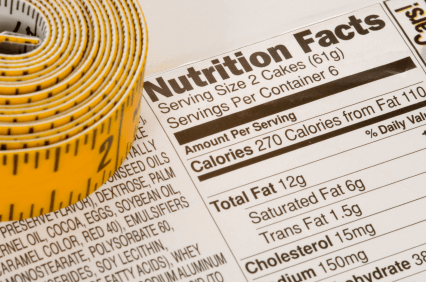What Are Calories?
Understanding the Power of Calories for Weight Management and Overall Health
"What are calories?" is a common question asked to understand the unit of measure that tells you how much energy a particular food or beverage will provide. They are used to determine the energy content of a specific food or beverage and are essential for the body to function properly. When we consume food, our body breaks it down and converts it into energy, which is measured in calories. The energy obtained from calories is used for various bodily functions such as breathing, digestion, physical activity, and maintaining body temperature.
The number of calories a person needs depends on age, gender, weight, height, and activity level. The average adult needs anywhere between 1500 and 2500 calories a day. This calorie intake varies due to gender, age, height, weight and physical activity. Men generally need more calories than women. Children and teenagers need more calories because the process of growth requires more energy. As we get older, most people will need fewer calories. People with active lifestyles require more calories than people who have inactive lifestyles.

Just as important as the quantity of energy is the quality of that energy. We measure the quality of the energy we get from food by considering the amount of nutrients that food provides.
It's interesting to know that protein and carbohydrates have the same four calories per gram and that fat has nine calories per gram. So that's more than double!
Alcohol, on the other hand, has seven calories per gram and is second after fat in calorie density. Alcohol is not the best beverage if you are trying to lose body fat because the body metabolises alcohol first before fat, carbohydrates and protein. This slows down your body's fat-burning ability, making it difficult to lose body fat.
1 gram of protein = 4 calories
1 gram of carbohydrates = 4 calories
1 gram of fat = 9 calories
1 gram of alcohol = 7 calories
Understanding calories for weight management
Understanding calories is essential for weight management because weight gain or loss is ultimately determined by the balance between the calories consumed and the calories burned. Here are a few reasons why understanding calories is crucial for weight management:
Calorie intake
Calories are a measure of the energy content in food and beverages. Consuming more calories than the body needs leads to weight gain, as the excess energy is stored as fat. By understanding the calorie content of different foods, individuals can make informed choices about their diet and ensure they are consuming an appropriate amount of calories for their weight goals.
Portion control
Understanding calories helps in portion control. Many people underestimate the number of calories they consume, leading to unintentional weight gain. By knowing the calorie content of different foods, individuals can better gauge appropriate portion sizes and avoid overeating.
Balanced diet
Understanding calories allows individuals to create a balanced diet that meets their nutritional needs while also managing their weight. By knowing the calorie content of different food groups, individuals can ensure they are getting the right balance of macronutrients (carbohydrates, proteins, and fats) and micronutrients (vitamins and minerals) without exceeding their calorie limits.
Weight loss
To lose weight, individuals need to create a calorie deficit, which means consuming fewer calories than they burn. Understanding calories helps individuals track their intake and make adjustments to their diet and exercise routine to achieve their weight loss goals.
Mindful eating
Understanding calories promotes mindful eating, which involves being aware of the quantity and quality of food consumed. By paying attention to calorie content, individuals can make conscious choices about what they eat, avoid mindless snacking, and develop a healthier relationship with food.
Overall, understanding calories is essential for weight management as it empowers individuals to make informed decisions about their diet, portion sizes, and overall energy balance. It allows for better control over weight gain or loss and promotes a healthier lifestyle.